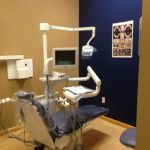Understanding Oral Motor Skills and Their Role in Childhood Development
Oral motor skills refer to the movements and functions of the lips, tongue, jaw, and other muscles in the mouth that are essential for activities such as chewing, swallowing, and speaking. In children, these skills are fundamental to communication and nutrition, impacting both physical and cognitive growth.
Children with well-developed oral motor skills can speak clearly, eat a variety of foods safely, and engage in social interactions more confidently. When these skills are underdeveloped or delayed, it can lead to difficulties that affect everyday life.
Why Strengthening Oral Motor Skills is Crucial for Children
1. Enhancing Speech and Communication Abilities
Clear speech depends on the precise coordination of oral muscles. Strengthening these muscles allows children to articulate sounds correctly and form words with clarity. For example, children struggling with speech delays often benefit from targeted oral motor exercises that improve tongue and lip control, leading to noticeable improvements.
2. Improving Eating and Swallowing
Strong oral motor muscles help children chew food thoroughly and swallow safely, reducing the risk of choking or aspiration. This is especially important during the transition from soft foods to solids. A story from a pediatric therapist describes a young child who overcame feeding difficulties after consistent oral motor therapy, making mealtime enjoyable again for the family.
3. Supporting Facial Muscle Development
Oral motor exercises contribute to the overall development of facial muscles, influencing facial symmetry and expression. This also supports proper breathing patterns and posture, which are interconnected with oral function.
Common Signs That Indicate a Need for Oral Motor Strengthening
Parents should watch for signs such as difficulty pronouncing certain sounds, messy eating habits, drooling, or frequent gagging. These may signal weak oral motor control and warrant professional assessment.
1. Speech Delays or Unclear Pronunciation
Children who have trouble forming words or are difficult to understand may benefit from oral motor therapy.
2. Feeding Challenges
Picky eating, prolonged mealtimes, or avoidance of textured foods can be linked to oral motor weaknesses.
3. Oral Sensory Issues
Hypersensitivity or low awareness inside the mouth may affect oral motor skill development.
Effective Strategies and Exercises to Strengthen Oral Motor Skills
1. Play-Based Oral Motor Activities
Incorporating fun games such as blowing bubbles, using straws, or making funny faces can engage children while exercising their oral muscles. These activities encourage muscle coordination in a natural and enjoyable way.
2. Targeted Therapy with Professionals
Speech-language pathologists or occupational therapists provide customized exercises and techniques that address specific weaknesses, ensuring steady progress.
3. Consistency and Encouragement at Home
Regular practice paired with positive reinforcement helps children stay motivated and integrate skills into daily routines effectively.
How Strengthened Oral Motor Skills Benefit Children Beyond Childhood
Oral motor skill development forms a foundation for lifelong communication and eating habits. Strong skills reduce the likelihood of speech disorders and feeding problems later in life, contributing to social confidence and overall well-being.
Parents like Lisa have witnessed remarkable changes in their children’s ability to communicate and enjoy diverse foods after focusing on oral motor development, highlighting the transformative impact of early intervention.
Getting Professional Support and Resources
If you notice signs that your child may need help strengthening oral motor skills, early evaluation by qualified professionals is key. Dentistry Toothtruth offers expert guidance and specialized programs tailored to children’s individual needs, providing families with trusted support throughout their developmental journey.






 Leila Zamiri DDS - Cherry Office4.0 (134 review)
Leila Zamiri DDS - Cherry Office4.0 (134 review) Rapid City Dental Clinic4.0 (90 review)
Rapid City Dental Clinic4.0 (90 review) The Geller Dental Group p.c.4.0 (799 review)
The Geller Dental Group p.c.4.0 (799 review) BGW Dental Group4.0 (292 review)
BGW Dental Group4.0 (292 review) Community Health Center of Snohomish County - Everett-North Clinic4.0 (960 review)
Community Health Center of Snohomish County - Everett-North Clinic4.0 (960 review) 7 Day Dental4.0 (134 review)
7 Day Dental4.0 (134 review) The Importance of Oral Health Education During Pregnancy for a Healthy Pregnancy
The Importance of Oral Health Education During Pregnancy for a Healthy Pregnancy Best Tips for Brushing Your Teeth Properly for Healthy Gums: Essential Techniques for Oral Health
Best Tips for Brushing Your Teeth Properly for Healthy Gums: Essential Techniques for Oral Health Why Skipping Dental Checkups Can Lead to Bigger Oral Health Problems
Why Skipping Dental Checkups Can Lead to Bigger Oral Health Problems Advantages of Porcelain Dental Restorations
Advantages of Porcelain Dental Restorations How Can Diabetes Cause Tooth and Gum Problems? Preventing and Managing Oral Health Issues
How Can Diabetes Cause Tooth and Gum Problems? Preventing and Managing Oral Health Issues Healthy Habits for Promoting Good Oral Health and Hygiene: Tips for a Healthy Smile
Healthy Habits for Promoting Good Oral Health and Hygiene: Tips for a Healthy Smile